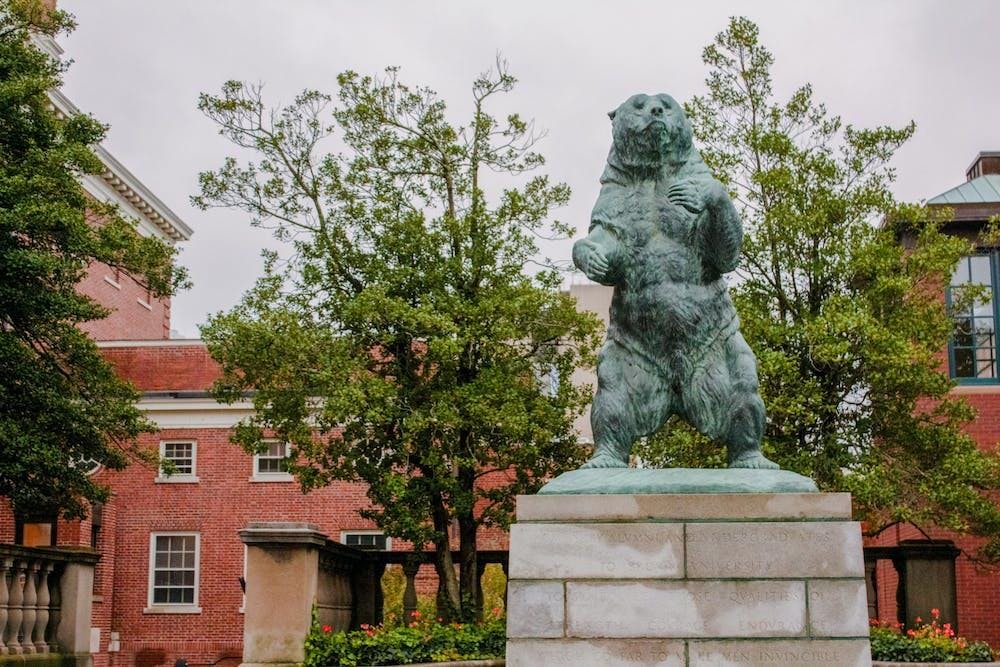With race-conscious admissions limited by the Supreme Court’s June ruling, Brown is turning its attention to applicant recruitment as a means to bolster student body diversity.
While the Court’s ruling in Students for Fair Admissions v. Harvard struck down the use of race in application review, the majority opinion did not place any limitations on “recruitment efforts that seek to enroll diverse classes without using racial classifications.”
The Office of Undergraduate Admission aims to recruit a diverse applicant pool via “pathway programs, targeted outreach and pipeline programs,” according to the University’s web page detailing its response to the Supreme Court ruling. This is part of the University’s overall plan to pursue diversity “via recruitment and yield strategies,” the web page reads.
Travel is a central part of Brown’s recruitment strategy, according to Associate Provost for Enrollment and Dean of Undergraduate Admission Logan Powell.
Every year, Powell and other admissions staff travel to high schools across the country and internationally to give presentations and provide information about Brown to prospective applicants. This fall, Powell has been traveling with a representative from Howard University, a historically Black college. This partnership “will attract applicants who may not have considered us in the past, but may now consider us,” Powell told The Herald.
Partnering with other institutions will attract “a greater diversity in the prospective applicant pool, and so far it has been really effective,” he added.
During these visits, Powell said he spoke with several students who had not previously considered applying to Brown but who walked away from their conversations as prospective applicants.
“Admissions officers can completely adapt their recruitment strategies (by tailoring) what high schools they visit and what towns they do presentations in,” said Sara Harberson, founder of college counseling group Application Nation, in an interview with The Herald.
Powell said that the University is looking to “dramatically” expand further partnerships with community-based organizations, such as those that assist underrepresented students during the college application process, in addition to maintaining existing relationships with high schools and college access groups.
Powell said that a few years ago, the University made a commitment to “doubling the number of hands-on outreach opportunities we had scheduled with community-based organizations,” and has since met that goal.
Precious Mines, executive director of College Possible Philadelphia, said she believes targeted recruitment can help mitigate undermatching, where qualified students opt not to apply to highly-selective institutions. Students might be hesitant to apply to a university “where they're not given an equal and equitable opportunity to attend,” she said.
College Possible Philadelphia “seeks to help students from disadvantaged communities to gain” admission to college and offers continued mentorship during their education, Mines said, adding that university partnerships with organizations like hers can also help reduce undermatching.
Mines also cited a need for higher education institutions to “foster an environment of inclusion” where underrepresented students feel welcomed. The University says it aims to “grow its reputation as a welcoming campus” using affinity centers, mentorship programs and student organizations, according to its website.
The admission office has been setting data-driven benchmarks to double the number of student veterans and bolster the socioeconomic diversity of the student body, Powell said, and hopes to attract more applicants from all geographic areas, religious backgrounds and ideologies.
The University currently ranks the lowest among the Ivy League for the proportion of students receiving Pell Grants, a proxy for student economic diversity.
Powell declined to answer whether the University was using zip codes to tailor recruitment to areas with more racially and socioeconomically diverse populations. But recruitment of students from rural areas remains a priority for the University, he said.
The Biden-Harris administration released guidance in June urging colleges and universities to adopt diversity-focused recruitment practices. The Department of Education has also committed to assisting states and territories “in marshaling their data to improve college recruitment, admissions and financial aid practices and devise strategies for increasing access to educational opportunit(ies),” according to a White House announcement.
Mines praised Brown’s approach to admissions, saying that the University has taken this guidance “head-on.”
“The kind of outreach we’re doing now is built on the outreach that we've been doing for quite a long time,” Powell said. “A lot of the things that people in the wake of the Supreme Court decision are scrambling to (set) up are things that we've been doing for years.”

Owen Dahlkamp is the managing editor of newsroom on The Herald's 135th Editorial Board, overseeing the paper's news operations. Hailing from San Diego, CA, he is concentrating in Political Science and Cognitive Neuroscience with an interest in data analytics. In his free time, you can find him making spreadsheets at Coffee Exchange.





